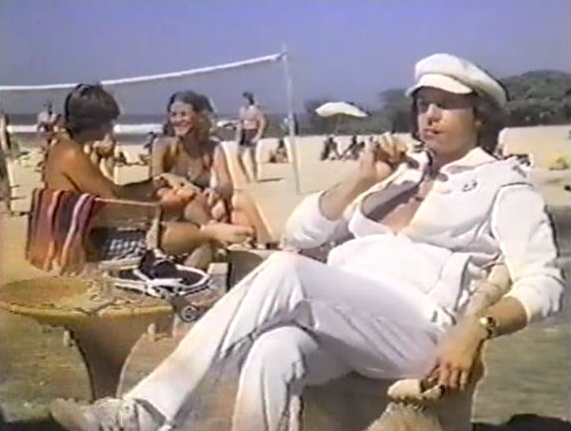
Conversely, the Brotherhood of Nod ending used the song Destructible Times written by Klepacki's local band, I AM. For the credits, Klepacki wrote Airstrike, featuring a hook later used in Command & Conquer: Tiberian Sun for the Global Defense Initiative. Klepacki next composed instrumental pieces for Command & Conquer, drawing influences from orchestral, house, heavy metal, and hip hop music.

He would continue to sample clips from film and other media throughout his career, using a quote from The Brain from Planet Arous in the Yuri's Revenge soundtrack Brainfreeze, for example. Complete versions of the songs later appeared on the game's commercial soundtrack. The samples were later found to interfere with the game's spoken audio, and were replaced with versions lacking the voices, although the original versions (and several other unused pieces) can still be found on the DOS C&C and Covert Operations discs. The first few songs he composed for Command & Conquer contained voice samples-including the notable pieces Act on Instinct and No Mercy (which featured wild declarations from Bill & Ted's Bogus Journey). With the company's recent shift to 22 kHz audio, Klepacki composed with an ASR-10 sampler, a Roland S760 sampler, a Roland JD 990 synth module, and an electric guitar. He combined various elements of this music and added his own touch to create a unique sound. To define the game's style, Klepacki listened to a number of bands, including Nine Inch Nails and Ministry, which would supply the iconic industrial style found in the majority of the songs. In 1994, Klepacki met with Westwood Studios developers to discuss the soundtrack of the company's next project- Command & Conquer.
How to change red alert 3 cd key registry series#
After finishing the third entry into The Legend of Kyrandia series Malcolm's Revenge, Frank Klepacki met with Westwood leaders to discuss the upcoming game Command & Conquer-the first in a series which would bring him wider fame and critical acclaim.

Film composer Hans Zimmer later praised Klepacki for reworking his scores. While working on Disney's The Lion King in 1994, he and the Westwood team were shown sketches of the unfinished feature film.

He later noted that he pushed the sequencing program on his Amiga to the limit while scoring the game. In 1992, he helmed the audio of Dune II, attempting to complement the music of the original Dune. He later composed with MIDI sequencing for several other Dungeons & Dragons games. The growing company enlisted him as a composer for the NES port of DragonStrike and the computer game Eye of the Beholder II. He submitted his demo tape-described as 'an acoustic guitar song with electric guitar leads and keyboard strings, and raining sound effects'-to the company's audio director. After learning to program BASIC on a Tandy 1000 and becoming interested in computer and video games, he applied for a job as a game tester at Westwood studios.


 0 kommentar(er)
0 kommentar(er)
